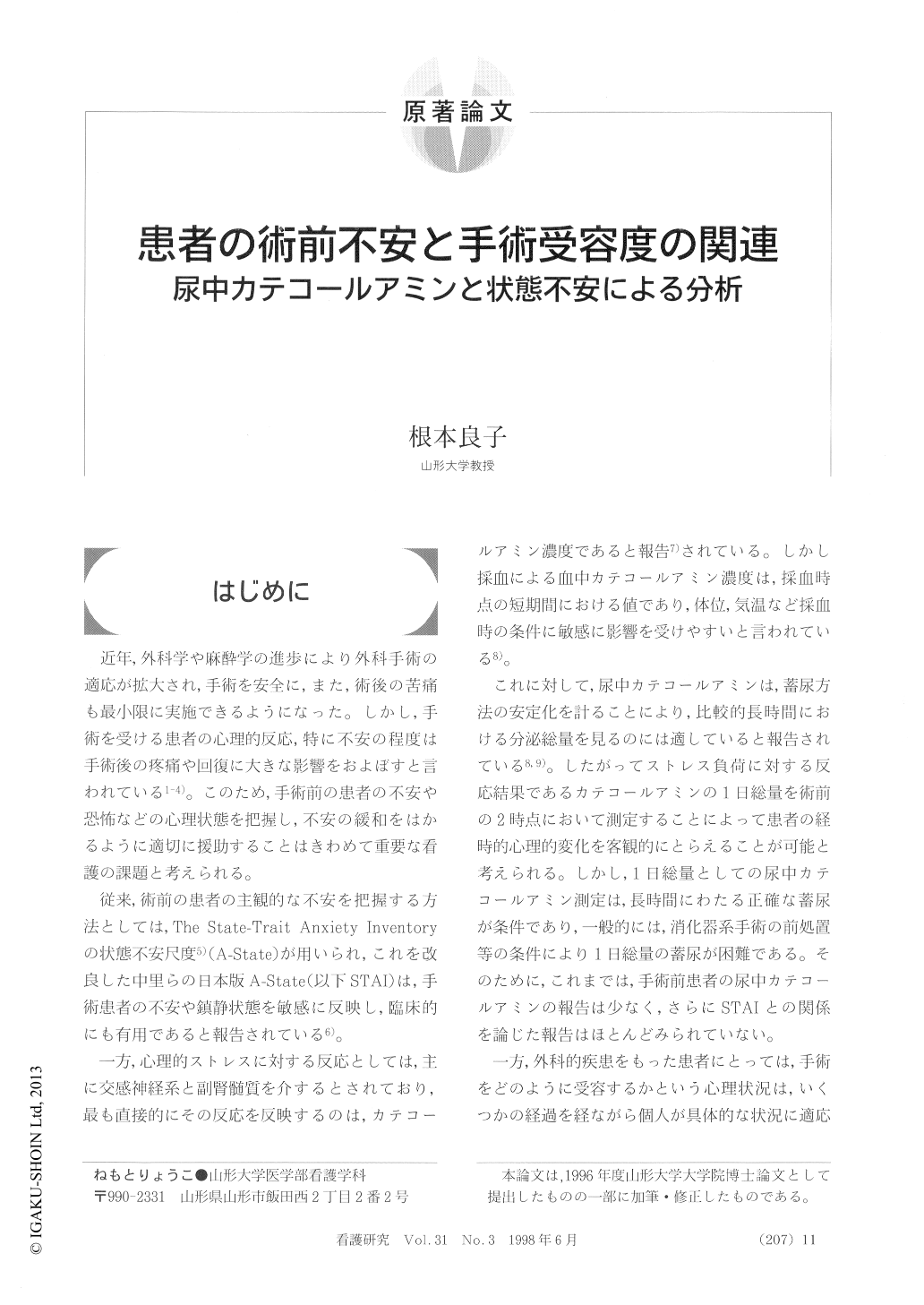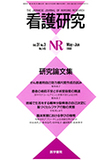Japanese
English
- 有料閲覧
- Abstract 文献概要
- 1ページ目 Look Inside
はじめに
近年,外科学や麻酔学の進歩により外科手術の適応が拡大され,手術を安全に,また,術後の苦痛も最小限に実施できるようになった。しかし,手術を受ける患者の心理的反応,特に不安の程度は手術後の疼痛や回復に大きな影響をおよぼすと言われている1-4)。このため,手術前の患者の不安や恐怖などの心理状態を把握し,不安の緩和をはかるように適切に援助することはきわめて重要な看護の課題と考えられる。
従来,術前の患者の主観的な不安を把握する方法としては,The State-Trait Anxiety Inventoryの状態不安尺度5)(A-State)が用いられ,これを改良した中里らの日本版A-State(以下STAI)は,手術患者の不安や鎮静状態を敏感に反映し,臨床的にも有用であると報告されている6)。
This study serially evaluated the psychological state and physiological response in patients prior to surgery and investigated the association of these parameters with surgery acceptance and psychological and physical factors.
In 51 adult patients scheduled for surgery on the digestive system, the anxiety score and daily total urinary excretion of catecholamine were measured 3 days and one day before surgery. Surgery acceptance was investigated by interview the day before surgery.
As a result, noradrenaline levels were significantly reduced the day before surgery compared to those 3 days before surgery. There were no significant decreases in adrenaline or anxiety. In approximately 70% of patients, urinary catecholamine levels prior to surgery correlated with anxiety scores. In 43% of patients, both values were decreased the day before surgery. Surgery acceptance was highest and both values were increased in 30% of patients. Either of the two values was increased in 27% of patients. Compared to that in the group showing increased in both values, surgery acceptance was significantly lower in all other groups. In groups with lower degrees of surgery acceptance, there were slightly higher proportions of patients with progression of clinical stage, those undergoing additional surgery for relapse, and those requiring artificial anus. These findings suggest that it would be useful to provide nursing and assistance to improve surgery acceptance and relieve preoperative anxiety.

Copyright © 1998, Igaku-Shoin Ltd. All rights reserved.


